|
It seems that each day we check the news to discover that another politician, producer, actor, or celebrity figure is being exposed for scandal or abuse. Many of those who have for years been hailed as the main influencers of public opinion, policy, and taste have in a stunningly short span of time lost support or credibility. Many of those who were on top of the world have been, we could say, deflated and dethroned. I have been pondering this lately as the Church prepares to celebrate the Solemnity of the Ascension of the Lord. Each Sunday in the Nicene Creed, we profess Christ’s ascension, “He ascended into heaven and is seated at the right hand of the Father.” The ascension is recounted at the beginning of the Acts of the Apostles (Acts 1:6-12). Theologically, we do not envision Jesus ascending like a balloon into the sky, but a king ascending a throne. The Feast of the Ascension celebrates the exaltation and enthronement of Jesus as King and Messiah at the right hand of God the Father in heaven. As many of us may be scientifically literate and democratically-minded citizens of the twenty-first century, we may think all this talk of thrones and kings and heaven may seem like it belongs to a world that has long passed away. But if our recent headlines have proven anything, what has not passed away is the perennial pursuit of power and our tendency to underestimate our willingness to use it in potentially harmful and self-aggrandizing ways. Power in and of itself is not an evil thing, and watching people fall publicly is not a cause for celebration. I think instead the present reality invites us to pause and reflect on—in light of God’s reality—the pursuit and exercise of power both in society and in our own lives. In truth, power is not something that belongs only to the powerful. Power exists across any human relationship: husband and wife, parent and child, teacher and student, boss and employee, and the list is endless. We are influenced vertically by our superiors and horizontally by our peers. Ideally, we work together to achieve the common good and common goals by sharing and exercising power in the right doses and ways. But I think if we’re honest, we all have our own way of being out of balance, tipping the scales. So, what does this all have to do with Jesus, who we call the All-Powerful One? As exalted King and Messiah, Jesus overthrows the love of power with the power of love. The Ascension is not a power grab that Jesus will use to control people and outcomes. Rather, we hear Jesus tell the disciples that once he has taken his seat on God’s throne, “you will receive power when the holy Spirit comes upon you, and you will be my witnesses in Jerusalem, throughout Judea and Samaria, and to the ends of the earth” (Acts 1:8). As disciples, we are not separated from Christ by a glass ceiling. Yet as disciples, we have to be careful where and how we exercise this power given to us in the name of Jesus. One of the images in Scripture of the Holy Spirit is fire. It is a great metaphor for power. Our stewardship of God’s power can bring light and warmth, yet it can also burn if used irresponsibly. I suspect today that much of what compromises our evangelizing message of Jesus’s kingship stems from the ways Christians have abused earthly power in the name of God. The Gospel and St. Paul preach a radically different alternative: the conviction that our human exercise of power more fully manifests Christ when it is surrendered than when it is wielded. So, I propose instead: What happens when we dare to profess Jesus enthroned and exalted, to receive the power of his Holy Spirit, and then lay it down in the service of the Gospel? Question for Reflection: How is Christ’s example of kingship and power different from what we see in the world?
0 Comments
“The Advocate, the Holy Spirit…will teach you everything.” -John 14:26 After two years of dedicated study of theology, I received my Master’s degree. This has always seemed a bit odd to me, because I often feel I still have so much to learn. This seems like the case for Jesus’ followers as well. After 3 years of discipleship, they didn’t know “everything.” Though they could be considered the “masters” of Christian life–having spent three years walking alongside Jesus—Christ tells them they still need the Holy Spirit in order to learn “everything.” He was explaining to them a fundamental reality of the Christian life: it is a life-long process of learning. This reality is sometimes daunting, but more often it is comforting. The men that spent three years at the feet of Christ, who witnessed His miracles, heard His parables, and encountered Him after His resurrection, didn’t have it all together. They were not perfect at discipleship and they still needed God, who would now be revealed to them in the indwelling of the Holy Spirit. Rather than spending physical time with Christ, they would experience something even greater: God dwelling within them. This intimate and powerful presence of God is something we can experience today. We receive the indwelling presence of the Holy Spirit on the day of our baptism and physically receive Christ Himself every time we partake of the Eucharist. Furthermore, Christ tells us in this Sunday’s Gospel that He and the Father will dwell within those who keep His word. This comforts me because I have never heard Christ’s voice, seen His face, or shared His food. Though I am generations and millennia removed from Him, He has sent the Holy Spirit to teach me “everything”—what it means to follow Christ and live the Gospel today. Much like the disciples, I still have much to learn. Though I have grown up knowing about Christ and His teachings, though I have figuratively sat at His feet for more than three years, I still need the Holy Spirit to teach and remind me what it means to be a follower of Christ each day. And in order to cultivate the indwelling of the Holy Spirit, I must continue to keep Christ’s word. This is so much more than the study of theology. As Pope Francis said in a 2015 homily, "We can study the whole history of salvation, we can study the whole of Theology, but without the Spirit we cannot understand. It is the Spirit that makes us realize the truth or – in the words of Our Lord – it is the Spirit that makes us know the voice of Jesus." Learning everything, therefore, means knowing and discerning the voice of Jesus. A life of keeping Christ’s word looks different according to your vocation or status in life, but overall, some things that help us recognize Christ’s voice include an active sacramental life, daily prayer, acts of charity, reading Scripture, and living according to Church teaching. In the nitty gritty of every day, this could mean keeping your cool while driving in rush hour traffic, taking a meal to a family with a newborn, participating in the Sacrament of Reconciliation regularly, giving your spouse the benefit of the doubt, going to Mass each Sunday, or taking a deep breath when your child throws his food on the ground for the third time that day. It could mean reading the daily readings at the breakfast table, praying evening prayer with your roommates, starting a rosary on your commute, participating in a weekly Bible study. In short, keeping Christ’s word is a lifelong, daily decision to do things that bring you closer to Him and encourage you to hear His voice. As we prepare to celebrate Pentecost in a few weeks, let us call upon the Holy Spirit to be our Advocate and Teacher. May we have the humility to call upon Him daily as we pursue this lifelong life of discipleship in order to truly hear the voice of Jesus that says, “Come, follow me.” We are about to enter into the holiest days of the Church’s liturgical year, the Easter or Paschal Triduum. The Lenten season, our time of preparation, will fade away into the spiritually intense days ahead. We know the story and how it ends. The disciples and Apostles of Jesus did not know and did not understand. That would come later. While we may know, do we truly understand? We are called to embrace fully and completely in our minds and hearts the basic Christian proclamation, the kerygma, that Pope Francis summarizes in a single sentence:
“Christ, out of love, sacrificed himself completely in order to save you.” (Christus Vivet, 118) Have we done so? We can learn many things from the Catechism or from Theology. We can do good through works of charity and justice. We can participate in many ritual actions of worship. It is all meaningless without trusting faith in Jesus Christ as our loving Savior who has risen from the dead and is alive today! Again, from Pope Francis: “See Jesus as happy, overflowing with joy. Rejoice with him as with a friend who has triumphed. They killed him, the holy one, the just one, the innocent one, but he triumphed in the end. Evil does not have the last word. Nor will it have the last word in your life, for you have a friend who loves you and wants to triumph in you. Your Savior lives.” (Christus Vivet, 126) May you have a blessed Easter Triduum! One of the topics the 2018 Synod on Young People, the Faith, and Vocational Discernment sought to address was the role of mentorship in the development of the spiritual life. In a time when so many of us seek to know more about the faith and struggle to find faithful examples in the world, the topic of mentorship is extraordinarily important in nourishing young Christians in the faith. The Instrumentum Laboris for the Synod, published in March, brings up two major points that address the roles a mentor has today. The first, and most talked about, is that of accompaniment. The other is education, which is especially important in a time when we live in an increasingly secular culture. These two facets of mentorship are different and cannot always be fulfilled by one person. For this reason, the contribution of the community of faith is incredibly important. In my life, faith education came from many sources, but none was more important than my Confirmation teacher who was also my youth basketball coach and the father of one of my best friends. Throughout my life, my mentor helped me to learn and grow more in my faith by inviting me to events and men’s conferences. In my Confirmation classes, he showed the beauty of the Faith and helped me understand the truth that flows from the Church’s teachings. Like many young people, I didn’t fully take advantage of a great mentor when I had the chance. But his presence in my life continues today, and his example is a continual witness of what it means to be a faithful Christian. When we look at the life of a saint, we often see the impact other peers, mentors, or saints had in their life. St. Augustine, for example, had two great saintly mentors: St. Monica (his mother) and St. Ambrose. St. Monica, who prayed tirelessly for the conversion of her son, showed the young Augustine an example of the Christian faith in a lived way. Augustine only fully appreciated this until after his conversion. St. Ambrose provided Augustine—who was struggling with his dualist view of the universe—with the truths found in the Christian faith, which strengthened Augustine and propelled him to ultimately become a Doctor of the Church. In my life, my friends and peers have been incredible examples of accompaniment. An intimate and baseline knowledge about me makes it so much easier for a friend or peer to understand where I am in life and how to proceed. Peer mentorship, in my experience, is only possible because of the tireless effort that my parents, teachers, ministers etc. have put into nurturing me in understanding and action in the Faith. Without those people I wouldn’t have had the faithful and honest advice that is always so valuable to making me a better Catholic. Just as Jesus sent out his Apostles two by two, we share in the Apostles’ mission to evangelize the world and we must rely on those who share our mission for their support in life. Saints are often friends with other saints. Two men who followed in the footsteps of the Apostles in fraternity and holiness were St. Ignatius of Loyola and St. Francis Xavier. In the early days of the Jesuit Order, these saints relied on one another for the strength to persevere in promoting the mission of the Society of Jesus. Roommates at the University of Paris, their friendship was centered around Jesus and informed by their studies in Theology. The union of intimate friendship and a well-formed Christian mind creates incredible fruits, which are seen clearly in the success of the Jesuit Order in the missionary work in Europe and around the world. A revitalized sense of mentorship among Christians is so necessary in a time when the world directs us away from God and into itself. The responsibility for educating and accompanying young people falls on old and young alike. So many young people search for true meaning. It is our responsibility as Christians to take their hand and walk them closer to faith by showing them the truth in the Church’s teachings. The 2018 Synod is so important because it refocuses on the universal call to holiness. We are called to invite young people into the fullness of the Faith through mentorship, educating them in the fullness of her truth and accompanying them through their struggles—always striving to bring each other closer to Christ along the way. Questions for Reflection: Do you have any examples of mentorship in your own life? How can you accompany and educate those around you in the example of Christ? For more resources on the Synod on Young People, the Faith, and Vocational Discernment, please click here. When you hear the name St. Augustine, what do you think of? Probably something about the Confessions, arguably his most famous work. Or perhaps you remember that he is one of the first doctors of the Church. But do you know about his spiritual journey from youthful hedonism to prominent theologian?
St. Augustine was born in the mid 300s in North Africa to a Christian mother and a pagan father. Initially educated in rhetoric, as a teenager, Augustine embraced a life of comfortable vices, which he outlines in his autobiographical and philosophical work the Confessions. Eventually, his intellectual pursuits lead him to Europe, into and out of Manicheism (a dualist religion based on pure reason), and back toward the religion of his childhood. Through the evangelizing work of St. Ambrose, Augustine was finally baptized into the Christian faith in his early 30s. He went on to become one of the early Church’s most important philosophers. For cradle Catholics like me, our faith journeys are nowhere near as dramatic as St. Augustine’s conversion from corrupt youth to doctor of the Church. Nevertheless, there are always opportunities for daily conversion! The teenage Augustine would pray, “Give me chastity and continency, only not yet.” How often do we catch ourselves praying in a similar vein? “Give me temperance—but not until I’ve eaten three packages of Oreos”; “Give me a stronger desire for prayer—but maybe not until next week, after I’m done binge-watching this TV show.” Like Augustine, we often find ourselves wrestling with our human weaknesses and our desire to do things on our own timeline rather than God’s. But even as we struggle to overcome our personal vices, God draws us closer to Himself, taking our fractured pasts to create a beautiful whole. St. Augustine’s theological and philosophical treatises would perhaps have not been so fervent or persuasive had he not previously so fully embraced bad philosophy before his conversion. His secular education and his training in rhetoric and Platonic philosophy prepared him for his work defending true Christian theology and refining its philosophy—so much so that he is recognized as one of the original doctors of the Church. Long before Augustine had come to fully accept the Christian faith, God was already preparing him for his future role as bishop and philosopher. Likewise, our past does not restrict our future. Choices that ended up leading us seemingly nowhere, periods of doubt or conflict—God can take these moments of human weakness and use them to bring us closer to Him. Like St. Augustine, even a previous decade of promiscuity could remind us of how empty is a life not lived for Christ. St. Augustine is living proof that no one—no matter how seemingly corrupt, how spiritually lost, or how morally confused—is beyond the power of God’s grace. On St. Augustine’s feast day, let us consider where we are on our faith journeys. Where is there room for daily conversion? How can we learn from our past failures to more fully embrace a future lived with Christ? Question for Reflection: What failure can I use from my past to build up my relationship with Christ? I am out of practice. Although I spend what feels like hours and hours each week writing papers, I am out of the habit of writing for pleasure. As a seminarian in my first years of theology studies, I am not yet crafting homilies. What was once an enjoyable and relatively easy undertaking now feels rather rigid and forced. Our spiritual lives also ebb and flow. At times, perhaps our prayer life or growth in virtue seems enjoyable and relatively easy. At other points, it can feel rigid and forced. As we enter into Holy Week, I am reminded of the continuing conversion that must happen in my own life. What has the task of this now-past Lenten journey taught me? It has taught me that nothing in the spiritual life should be forced. Discipline is important, and hopefully the forty days of Lent have strengthened each of us in our resolve to turn to the Lord in prayer during the course of each day. Saint Elizabeth Ann Seton, the first American-born saint, wrote, “We must pray without ceasing, in every occurrence and employment of our lives—that prayer which is rather a habit of lifting up the heart to God as in a constant communication with Him.” Hopefully this season of preparation has strengthened our habit of prayer in the way that Saint Elizabeth spoke of. When we pause to recognize the stirrings in our heart that come from a genuine encounter with the Lord in times of prayer, it can often be surprising to take stock of the promptings of the Holy Spirit. “Here is the true gift of the Father,” said our Holy Father Pope Francis. “Man knocks with prayer at the door of God to ask for grace. And he, who is Father, gives me that and more: a gift, the Holy Spirit.… We must learn to knock on the heart of God! And we learn to do it courageously.” When we are bold and courageous in our prayer, we draw even closer to God—Father, Son, and Holy Spirit. As we look ahead to the remainder of Holy Week, how can we enter more fully into the great mysteries and events that the Church commemorates this week? First and foremost, we should not forget to pray! The time of preparation for Easter is still upon us; we pray with a real and sincere Christian hope. “To come to know God—the true God—means to receive hope,” wrote Pope Emeritus Benedict XVI in Spe Salvi. We should pray with fervent hope to come to know the living and true God during these final days of preparation for Easter. For more Lenten and Easter resources, please click here. For more resources on prayer, please click here. The Church celebrates National Vocation Awareness Week this year from November 5-11. According to the USCCB, it is “an annual week-long celebration of the Catholic Church in the United States dedicated to promote vocations to the priesthood, diaconate and consecrated life through prayer and education, and to renew our prayers and support for those who are considering one of these particular vocations.” In order to learn more about vocations and discernment, the Catholic Apostolate Center reached out to men currently in formation and asked them the following three questions: What were you doing before formation? What are you doing now? And what has this transition been like? Below are their answers about the transition from the collegiate atmosphere into formation for the priesthood and/or Consecrated life. What were you doing before formation? Before I entered seminary, I attended The Catholic University of America for two years, where I majored in Philosophy. I like to think that I was your average college student. I was a Resident Assistant my sophomore year; I was involved in the Knights of Columbus; I held a few on-campus jobs. I had a close group of friends who would go to daily Mass together, as well pray the rosary and spend time in Washington, D.C. I tried to be as active in college as I could. What are you doing now? I am in “College IV,” which is the equivalent to being a senior, at the Saint John Fisher Seminary program for the Diocese of Bridgeport. This is currently my second year in formation. I am working towards my Bachelor of Arts Degree in Philosophy from Sacred Heart University (SHU). I live with seven other men in the diocesan formation program. Our daily schedule begins with a Holy Hour in the morning, followed by Holy Mass and breakfast. We have classes throughout the day, some at SHU, some at the seminary. In the evening we gather for prayer and dinner. After graduation in May, I will be going to a Major Seminary to begin my four years of Theology Studies. What has this transition been like? Like any major life change, the transition into seminary formation has had its challenges. It was very hard to leave the community I was involved in at CUA. However, seminary is not something you do on your own. I learned the importance of fraternity through my involvement with the CUA Knights, and seminary formation deepened this fraternity. After adjusting to the daily schedule, and better understanding what it really means to give my life for Christ, the transition into seminary became less challenging. I have had no regrets from transferring into seminary in the middle of my undergraduate career. The transition from college into seminary, as hard as it was, taught me how important it is to trust in God’s plan, and how much joy and peace listening to Him will bring to our lives. To learn more about Vocational Discernment, please visit our Vocational Discernment Resource Page.
Not long ago, I sat listening to the words of my university’s honored commencement speaker, Peggy Noonan, who entreated us to do something after we graduated that day: “You must not stop reading books. That’s all. If you seek a happy and interesting life, one of depth, meaning and accomplishment, you must read books.” I thought that to be a simple message—but refreshingly concrete and unique. As she pointed out, to get to graduation day my peers and I had read a number of books. Most were works assigned as required reading for a course rather than for leisure. Continuing to read after a life in school would benefit us, Noonan said, as we moved through life to new places, with new people, and into new positions.
As a Catholic, I took Ms. Noonan’s advice as an opportunity to seriously take up spiritual reading. I previously had taken advantage of my Catholic high school’s library to some degree, but I often had to let spiritual reading take second place behind the demands of other commitments. This continued in college with the much larger university library collections. There seemed to be no time to read for the sake of reading, spiritual or otherwise. While I may not have had much choice at the time, I know that when the faithful disregard the great literary works of Catholicism, we do ourselves a great disservice. With its full and ever-expanding breadth of writings, the Church encourages the faithful to enrich themselves through the works of popes, saints, and the Magisterium, along with theologians, mystics, clergy, and religious (see CCC 133). These can offer many insightful perspectives on the Faith, but they cannot replace reading the Bible! As St. Jerome remarked, “Ignorance of Scripture is ignorance of Christ!” Similarly, the Second Vatican Council affirmed the Word of God as “food for the soul, the pure and everlasting source of spiritual life.” (Dei Verbum, 21) We may spend years studying books for school and for professional development—how much more should we pore over the Word of God “to build you up and give you your heritage among all those who are sanctified”? We nourish ourselves with physical food multiple times a day, shouldn’t we do the same with spiritual nourishment? When I worked in a Catholic bookstore, my boss shared this insight from St. John Bosco: “Only God knows the good that can come about by reading one good Catholic book.” Customers might have wandered in to buy a rosary or Catholic memorabilia, but many times I noticed them stop in front of a display of books on family life, spirituality, or healing prayers. As I assisted them with their selections, many would share their favorite devotions or ask for guidance in selecting a title. The customers were seeking writings by those whose experiences they could relate to—authors whose work would speak to our customers just as Sacred Scripture speaks to each of us and motivates us to seek and undertake the will of God. On other occasions, customers would simply be looking for something new to deepen their spirituality and share what they learned with their family and friends. I have observed that the benefits of supporting Catholic bookstores extend in many ways: not only does it help a business to continue providing accessible, quality literature, but it also offers customers the chance to find something meaningful and wholesome that will be useful in subsequent questions, reflections, and experiences long after the first reading. Consider dusting off your Bible or picking up that Catholic book on your table. Spend a few moments and allow yourself to be touched by the author’s message and then share the experience with loved ones. Start a book club with friends and neighbors to discuss a spiritual work and apply it to your day to day life. The words of an approved source can galvanize, console, clarify, educate, or guide your spiritual formation. As Ms. Noonan reminded us, continual reading throughout our lives, especially of spiritual works, will give our lives greater depth and meaning. Start by picking up the book. Questions for Reflection: Is there a spiritual book or book from the Bible you’ve been meaning to read? How has a book or Scripture passage impacted your life? I remember the first time I experienced Eucharistic Adoration. During my first week of college, I was walking back to my residence hall after grabbing dinner with some friends of mine. As we walked back into our dorm, one smiling upperclassmen was talking to some other freshman in the lobby. He saw us and made a beeline. I was only five steps away from the elevator, maybe he wouldn’t catch me. Alas, the elevator did not come in time and we ended up chatting with this friendly upperclassman. As he introduced himself, he also invited us to praise and worship Adoration that night. He promised us there would be a ton of good food afterwards. Though there were posters about this event throughout the dorm and we knew about it, we did not previously plan on attending. However, after being personally invited, being called by our names, we decided to give it a try. It was one friendly person’s invitation (and yes, the promise of food) which forever changed my faith-life. After going to Adoration and the fellowship held immediately afterwards with friends, I was hooked. College students and young adults are in a unique place in their faith journey. Many are seeking answers to some pretty big life questions. As the Church, we have the joy of being called to reach out to these sometimes marginalized members of our community and invite them to experience the love of Christ. Yet, how do we do that? As a college student myself and someone who ministers to undergraduate students, I have found that there is one way in which your parish can successfully engage Catholic young adults and college students. All college students and young adults seek a place to belong. And what better place is there than the Church of Jesus Christ? The parish community can seek to provide different opportunities for college students and young adults attending the parish to get together for fellowship. Having faithful Catholic friends your age who provide you with support on your spiritual journey is indispensable. The Christian life is not individualistic in nature, but one marked by interdependence. Being a parish which hosts events that foster communion between young adults is a key way to keep young adults engaged in parish life. Some parishes successfully do this by hosting mini-Theology on Tap series at a local restaurant, or something as simple as hosting praise and worship Adoration followed by a meal. These are just two examples of how you can help young adults feel like they belong in your parish community and experience Christian fellowship with their peers. One principle tip is to host events which have a liturgical aspect (pray compline together or have a holy hour) and a fellowship aspect (do not underestimate the power of food!). Yet, you might be thinking, there are no college students or young adults currently active in my parish! Pope Francis might have some wisdom to share with us. During Pope Francis’ journey to Brazil for World Youth Day in 2013, he told an assembly of bishops that "we cannot keep ourselves shut up in parishes, in our communities, when so many people are waiting for the Gospel.” Each baptized member of the parish community has a responsibility to be hospitable and welcoming. Each member of the parish community must be marked by their missionary zeal. Evangelization is not simply the job of the parish staff, but the calling and the joy of each Christian. Hence, it is your calling, not somebody else’s, to reach out to inactive college students or young adults and invite them back to the parish so that they can experience the love of Jesus Christ. This involves each person in the parish calling students by name. It was that simple invitation which brought me into regularly participating in the life of the Church. This responsibility, this call of each Christian to invite students and young adults by name, also becomes one of the greatest joys. *This post was originally published on our blog on April 14, 2016. “My daughter, tell the whole world about My inconceivable mercy.” -Christ to St. Faustina Kowalska (Diary, no. 699) In one of my graduate theology classes, a professor defined mercy as “love which keeps loving in the midst of rejection.” Pope St. John Paul II further elucidates, “And is not mercy love's ‘second name,’ understood in its deepest and most tender aspect, in its ability to take upon itself the burden of any need and, especially, in its immense capacity for forgiveness?” This mercy, this type of love, often seems inconceivable. Christ himself concedes the inconceivable aspect of mercy to St. Faustina. He does not concede the impossibility of mercy, but places no limits on his own. God’s mercy is beyond comprehension. It is characterized by an unending, unfailing love for humanity—a humanity which has rejected him since the garden of Eden. From that moment and until today, God has worked and is working towards our salvation. His fidelity can be seen throughout Scripture and jumps from the pages of the Bible into our very lives. Jesus Christ is the face of mercy. This Sunday, we especially celebrate the merciful love of the Father on the second Sunday of Easter – known formally as Divine Mercy Sunday since its establishment in 2000 at the canonization Mass of St. Faustina by Pope St. John Paul II. Divine Mercy Sunday is a powerful celebration of the mercy of a God who sent his only begotten Son in expiation for our sins. We come to know God as the Father who stands in the field awaiting the return of his prodigal sons and daughters, the King who washes the feet of his bruised and dirty children, the crucified Lord who invites us to place our finger in his wounds, to see and believe. This mercy is life-changing—a truth affirmed in stories such as the woman at the well or even that of the good thief on the cross. God’s mercy inspires us and strengthens us to be men and women on fire with love—to be missionary disciples proclaiming the wonder of salvation and the infinite goodness of God. This mercy affirms that we are loved, called, and chosen. It assures us that we have purpose and meaning, gifts and talents that can be used for building the Kingdom of God. God’s mercy, however, is meant for more than our own personal benefit. God has shown us his mercy to show us the way back to himself. We are called, therefore, to emulate it. Christ’s mercy is our beacon, our model. We are called to live mercy, to be the face of mercy to our brothers and sisters—an impossible task on our own. Christ makes the inconceivable conceivable by empowering us through the gift of Holy Spirit as he did at Pentecost, of which we read in this Sunday’s Gospel. Christ breathes on those in the Upper Room, saying, “Receive the Holy Spirit.” Mercy, much like grace, is an unmerited gift of love from God. It is meant to lead us outward in love and mercy toward our neighbor. Christ also says, “As the Father has sent me, so I send you." Therefore, this gift is not meant to be hoarded in the Upper Room, but to be carried out to the nations! We see the concrete fruits of the Holy Spirit and of lived mercy in the early Church. In the first reading for Sunday, we read, “All who believed were together and had all things in common; they would sell their property and possessions and divide them among all according to each one's need.” The early Church was rooted in the understanding of mercy, which resulted in a strong communal life founded on works of charity. The early Church understood well how to be the face of mercy to a broken world. This can seem like a daunting task. As John Paul II concedes, “It is not easy to love with a deep love, which lies in the authentic gift of self.” However, “This love can only be learned by penetrating the mystery of God's love. Looking at him, being one with his fatherly heart, we are able to look with new eyes at our brothers and sisters, with an attitude of unselfishness and solidarity, of generosity and forgiveness.” We love because we were first loved. We are merciful because we have first been shown mercy. We are called, therefore, to carry this torch of mercy into the third millennium, into the here and now. We are all called to be missionary disciples spurred forth by God’s love. Let us, then, be rooted in “the breaking of bread and to the prayers”—in the Eucharist and prayer—in order to better receive and emulate daily God’s mercy. In so doing, we will have the courage and strength to go out into our hurting world, the field hospital, with the healing balm of God’s mercy. Let us make the inconceivable mercy of God conceivable by the witness of our lives. May our recurring prayer be always, as St. Faustina taught us, “Jesus, I trust in you!” Question for Reflection: How has God revealed his mercy to you? How can you “be the face of mercy”? To learn more about Divine Mercy Sunday, click here. To learn more about the Jubilee Year of Mercy, click here. Deus Caritas est: God is Love. How many times have we heard this simple yet profound theological truth in a homily, story, or teaching? How many times have we taken this for granted? In a world where truth often seems subjective, God’s love remains a refreshing and comforting constant in the Christian life. If this were not so, for what purpose, let alone by what means, would you or I exist? It is this perfect love of God which sustains us each and every moment of eternity. In fact, it’s God’s very nature, so bursting with love, that wills us into being. So too must our love for our neighbors guide and give purpose to our lives. The liturgical season of Lent is an especially wonderful opportunity for us to reorient ourselves towards God’s love and mercy. As we prepare to celebrate the ultimate expression of love the world has ever known this liturgical season, we may give up something we fleetingly desire in order to be made more aware of our need to depend on the One Love, the True Love, the Infinite Love. Of course, we can do more throughout Lent, but take to heart the suggestion of my bishop: [T]his Lent, fast and abstain when the Church requires it; give something up to make room for God and his mercy to fill you. Pray more and pray deeply and whenever you can because God listens to you: prayer puts you in touch with God and his mercy. Do something good for someone else every day; resolve to care about someone else every day, because God does, Jesus does and wants you to be like him, loving and full of mercy. Don’t make this Lent a complicated regimen of resolutions and promises that will unravel a week from now. Make it simple. Make it real. [emphasis added] Lent is not a time of self-pity or bemoaning our spiritual shortcomings. To fail to acknowledge God’s willingness to have mercy and forgive the sinner of his or her faults places sin as the end without further hope of relief, restricts one’s view of God as having limits on his love, and risks committing a sin against the Holy Spirit (i.e. believing that the magnitude of a sin is greater than God’s power— and continuous willingness— to forgive [cf CCC 1864]). While Lent brings to mind the classic images of sackcloth and ashes, the Lord desires something much more personal than just the recognition of our sins—“sincere, heartfelt repentance, change of heart, conversion” is what each of us is called to offer the Lord with the same Love He offered to those He encountered in His earthly ministry and ultimately from the Cross. “I desire mercy, not sacrifice,” our Lord, echoing the words of the prophet Hosea, declares to the Pharisees during the calling of Matthew (cf. Hosea 6:6) For us today, these words still ring true. Lent is not an easy time, but it invites us to shake us out of our spiritual complacency if we are to answer the Lord’s call to conversion. This may be uncomfortable. Receiving the ashes on our foreheads tomorrow, however, signifies our commitment to God that we will endeavor each day—and not just until Easter Sunday—to change our lives to be (once again) oriented towards God in avoidance of the sin and distractions which lead us away from His love. While we seek forgiveness from God, we are also to freely forgive others, “And forgive us our debts, as we also have forgiven our debtors.” Even if we fall along the way, the important thing is to pick ourselves up and start again— the Lord is patient! In closing, let us reflect on a final word from the Venerable Fulton Sheen: God loves you despite your unworthiness. It is His love which will make you better, rather than your betterment which will make Him love you. … Say to yourself over and over again, regardless of what happens: “God loves me!” And then add: “And I will try to love Him!” (Fulton Sheen, Remade for Happiness: Achieving Life’s Purpose through Spiritual Transformation (San Francisco: Ignatius Press, 2014), 187, 25.) At some point during my time as a college student, I encountered the great saint and medieval theologian St. Thomas Aquinas (1225-1274), and began to realize just how truly important and vast was his intellectual impact in history. As a witness to the profound and enduring quality of Thomas’ theological insight and teaching, the Catholic Church honors him with the title “Doctor of the Church.” Thomas certainly spent much of his life in a classroom teaching and debating on the most relevant questions of his day. But when it came to his primary vocation as a Christian, the soft-spoken saint would be quick to point out that he was first and foremost a student. The word disciple literally means “learner” or “student.” In the Bible, a disciple is, “A student or follower who emulates the example set by a master and seeks to identify with the master’s teachings.” (Catholic Bible Dictionary, ed. Scott Hahn) For Thomas, discipleship meant being an entirely devoted student of Jesus Christ. One of Thomas’ theological principles was that everything Jesus said and did was meant for our imitation and instruction. In the time of Jesus, a disciple did not just learn from, but learned to be like their teacher. We see this, for example, at the Sermon on the Mount, which is an extended lesson about a radically new vision for life received at the feet of their teacher (“Rabbi”), Jesus. Today, the Church’s emphasis on the New Evangelization to make and grow as disciples also means we are to become in every way students of Jesus. Here are three important ways Aquinas modeled being a student of Jesus, a disciple, worthy of our imitation. A Student of Scripture For Thomas, Sacred Scripture makes known “that heart of Christ” (see CCC 112), and we acquire that heart gradually by reading and studying the Bible. In addition to composing many commentaries on individual books of the Bible, all of Thomas’ writings demonstrate a life soaked in a love and knowledge of Holy Scripture. Thomas realized the impossibility of growing as disciples of Jesus apart from familiarity with the living Word of God. A Student of Prayer Even with a multitude of followers and demands, Jesus was frequently found in personal prayer with the Father. Similarly, as prolific a writer as Thomas was, Thomas never sacrificed his time of prayer and contemplation for the sake of work or greater productivity. As a result, aside from his dense technical writings in theology, Thomas composed captivating prayers that the Church uses in liturgy and devotions even today. Thomas loved to pray through song, and among his most well known prayers include the famous Eucharistic hymns “O Salutaris,” “Tantum Ergo,” and “Adoro Te Devote.” A Student of Truth Jesus is the Truth (John 14:6). In a culture saturated with opinion and often biased news, we can learn from Thomas’ unceasing search for truth. A love of the truth compelled Thomas to devote himself to understanding the world around him (even where he disagreed), to be slow to judge, quick to learn, but steadfast in his convictions and trust in Jesus. Whether you are in school or beyond, Thomas models what it means for a disciple to seek the truth. That could mean doing more research about our opinions, being more willing to have our perspective challenged, or just trying to learn something new every day. Thomas even has a great Prayer for Students that we can all apply to whatever situation Jesus is calling us to keep learning about. To learn more about prayer, please click here. 9/1/2016 Reading the Book of Creation: Reflections on the World Day of Prayer for the Care of CreationRead NowOn the Feast of the Transfiguration, August 6, 2015, Pope Francis established the “World Day of Prayer for the Care of Creation” to be celebrated annually on September 1. In doing so, the Holy Father shared his concern for creation with Ecumenical Patriarch Bartholomew, who initiated a similar day of prayer in the Orthodox Church in 1989. For Pope Francis, the World Day of Prayer for Creation reminds Catholics of our “vocation to be protectors of God’s handiwork,” a calling and responsibility which is “essential to a life of virtue; it is not an optional or a secondary aspect of our Christian experience” (Laudato Si’ 217). As we celebrate this second annual World Day of Prayer for Creation, it is fitting to reflect on our vocation as Catholics to care for creation. Though we have a long-standing tradition of caring for creation that goes back to the early Church Fathers and has been promoted more recently by Pope Emeritus Benedict and Pope St. John Paul II, Pope Francis has brought this aspect of our faith into the limelight. I believe there are two main reasons for this: conversion and evangelization. The ecological crisis, the Pope tells us, is a summons to profound spiritual conversion that leads to developing a deeper relationship with the world around us and recognizing that “the life of the spirit is not dissociated from the body or from nature or from worldly realities, but lived in and with them in communion with all that surround us” (LS, 216). We are called to live in the world, not apart from it. We get to the spiritual through the physical. Pope St. John Paul II also taught us this in his Theology of the Body. This conversion also involves recognizing our sins against creation. In Laudato Si’, Pope Francis reminds us that “human life is grounded in three fundamental and closely intertwined relationships: with God, with our neighbor and with the earth itself” (LS, 66). Our faith exhorts us to live well, not only with God and with our neighbor, but also with the earth. One practice for this World Day of Prayer for Creation could be to examine our consciences and consider how we have treated the created matter with which we have been entrusted. Have we been selfish and unconcerned for the needs of others, consumeristic, gluttonous, unaware of the gift that creation is to us? Perhaps we have wasted food, water, or energy unnecessarily. Perhaps we watched hours of Netflix when we could have been outside walking with a friend, serving the poor, or contemplating nature. Do we feel compelled to have the latest iPhone or the largest car? Our Holy Father points out that we need to “replace consumption with sacrifice, greed with generosity, wastefulness with a spirit of sharing,” and he quotes Patriarch Bartholomew in exhorting us to cultivate “an asceticism which ‘entails learning to give, and not simply to give up. It is a way of loving, of moving gradually away from what I want to what God’s world needs.’” (LS, 9). In our process of conversion we can follow the example of Pope Francis’ namesake, St. Francis of Assisi, in doing the inner work needed to embrace creation as “Brother” and “Sister.” I believe that Pope Francis, like the two popes preceding him, also sees our Catholic concern for ecology as a path into the New Evangelization. The beauty of creation speaks to the heart and can awaken human persons to a deep interior longing for the divine source, for the Creator God. Great spiritual writers like St. Bonaventure called the created world the “book of creation,” because the created world is constantly speaking to us of God. As humans we learn to understand the language of creation by spending time outside, by developing a heart for creatures, by learning to see the vestiges of God’s love in the beauty, diversity, and extravagance of the natural world. In doing so, we come closer to God and to understanding his plan for us and for the world. It’s a two-way street: We need to learn the language of creation in order to better care for the created world. At the same time, in that conversation, we are drawn into a deeper relationship with God, the Creator. As we experience this ourselves, we are driven to share the experience with others in a new kind of evangelization. In our fast-paced world, being attentive to creation reminds us that “we are not God” (LS, 67), for if we pause and look at the beauty surrounding us, we experience a beauty that transcends anything we humans can create. At the same time, we become aware of our unique creation as humans and the moral structure inscribed into our very nature (LS, 155). Being outdoors is also a healing tonic to assuage the effects of technology and the pressures of the virtual world in which we spend so much of our time. It is an antidote for the “technologization” of society and keeps us in touch with true reality. Let us then, as we celebrate this World Day of Prayer for Creation, embrace with joy the opportunities for conversion and evangelization that lie ahead! Click here for more resources on ecology, the World Day of Prayer for Creation, and Laudato Si.
One of the most exciting, profound, yet sometimes awkward and unnerving places of parish ministry involves welcoming new Catholics officially into the Church through what is called the Rite of Christian Initiation of Adults, or RCIA for short. Many parishes are now gearing up for the next season of RCIA, which generally runs from early Fall and concludes with the Easter Vigil (this year on April 15, 2017). Over the years, I’ve had the opportunity to serve and lead RCIA in a few parish settings and have been blessed to accompany some friends and family members through the process. But every year there are things I learn and need to be reminded of to facilitate a truly transformative time for the candidates and catechumens. Below, I’d like to offer some perspective, as well as a few pitfalls to avoid that have made a difference in the way the teams I’ve been a part of approach this important ministry. Speak their Language For those of us who grew up Catholic or actively learn and read about our faith, we become very familiar with the vocabulary and theology of the Church that is typically foreign and confusing to newcomers. Don’t assume people know what you are talking about, or what a word or acronym (even RCIA!) means. People are learning a new language of faith, which requires patience, clarity, and practice. Without patience and clarity, people feel alienated and lost, not impressed, and you risk having your faith come off as pretentious and antiquated, not living and effective. Teach Them to Pray Going off the last point, we should remember that prayer is the primary language of the faith. This is based in the ancient Catholic spiritual axiom, “Lex orandi, lex credendi.” The truth is, we assume people know how to pray, but prayer takes learning and practice, just like anything else. Prayer is necessary for living out the Catholic life beyond RCIA, but instead of just telling people to pray, we need to actively teach new Catholics how to pray by praying with them. Do some form of prayer together each week—the Rosary, Lectio Divina, a litany—to expose people to the richness of Catholic spiritual life. If we leave participants with anything, let it be the desire and ability to pray. Learn Their Story As passionate teachers of the faith, RCIA leaders often love to share their experience and favorite subjects about the Church and our faith. That’s important, but we often risk talking when we should simply be listening. Be mindful in giving the candidates and catechumens plenty of time to speak and share their story with one another, not just for a brief minute the first day, but also as part of an ongoing process that extends the whole course. Think Outside the Classroom Learning the content of the Catholic faith is essential, no doubt about it. But often our approach gives the impression that church teachings only live in the pages of textbooks. If all learning about the faith happens in the classroom, it has a tendency to stay there. Look for ways to make connections between Catholic beliefs and tradition and real action and practices. Learn about the corporal and spiritual works of mercy by scheduling time to go out as a team, do a few of them together, and then reflect on them. In Baltimore where I live and work, we are surrounded by some amazing Catholic historical and religious sites. We decided, “Why not incorporate that into our RCIA experience?” Instead of just reading about the saints, we planned field trips to the churches and homes of local saints. RCIA became a more memorable experience that expanded horizons and made people feel at home in their new faith family. Build a Strong Team Your most valuable asset is a dynamic and cooperative RCIA ministry team. I’ve heard of RCIA teams that actually actively disagree and challenge one another over church teachings in front of the class. Different personalities and gifts are important, but they should work in unity. Be mindful of what kind of personalities and gifts will resonate with the experience of people going through your program. Think Ahead New converts are frequently powerful and fresh witnesses to the joy of their faith and are often ready and excited to get involved. Before the RCIA process is over, start looking for opportunities to move new Catholics into the service opportunities and ministries of your parish. I recently watched a movie that’s been on my Hulu queue for some time--a 1966, mostly black and white film by the Russian filmmaker Andrei Tarkovsky on the 15th century medieval Russian artist named Andrei Rublev. Sound exciting? Maybe not to all… but it was on the Vatican’s recommended Best Films list, so I thought it was one probably worth seeing. Of all the magnificent works of Christian art and architecture, I believe the Russian monk and artist Andrei Rublev’s (c. ~1360–1430) icon of the Holy Trinity still stands out. For how influential the icon has been for generations of artists and theologians, it doesn’t look like much. You may have seen the icon but never heard of the Russian monk and artist, Rublev, of whom little information is known (especially after he took his vow of silence!). Those who have seen the icon may never have recognized the Trinity present in the domestic scene of three people sitting around a table. Rublev’s icon is both simple and complex. Even though the Catechism tells us the, “mystery of the Most Holy Trinity is the central mystery of Christian faith and life” (CCC 234), we may still find it difficult to imagine what difference the Trinity makes in our daily life and actions. The Sunday after Pentecost (this May 22) celebrates the Solemnity of the Most Holy Trinity, or Trinity Sunday for short. I’m not giving a movie review or a systematic take on the Trinity, but Andrei Rublev did serve as a reminder of the great mystery and gift of God revealed in the three persons of the Trinity- Father, Son, and Holy Spirit. Rublev’s work is not simply a masterpiece of medieval Russian iconography, but also represents one of the most profound and concise theological reflections on the Trinity in history. Known by most non-Western Christians as The Hospitality of Abraham, the three persons seated around a table depicts the Old Testament scene of three angels visiting Abraham at the Oaks of Mamre (Genesis 18:1-15) that Christian tradition sees prefiguring the Trinity fully revealed at the coming of Christ and the sending the Holy Spirit. Andrei Tarkovsky produced Andrei Rublev and loosely based it on the life of the artist and his conviction of “Christianity as an axiom of Russia’s historical identity.” Tarkovsky’s hauntingly beautiful film, set in 15th century Russia, is not really a biography, but an exploration of the human longing for transcendence and freedom in God through faith and art in a world often characterized by the chaos and violence of sin. When first released, various scenes were censored or cut out entirely by government officials of the atheistic and authoritarian Soviet Union, whose oppressive ideology the film subtly criticized. Tarkovsky believed his Trinitarian faith led him to take risks for truth, not remain comfortably passive. It was for this reason that he produced such a compelling film. For Rublev and Tarkovsky, the Trinity wasn’t just an abstract idea, but a power and a presence at work in the world and in every human heart. Their work highlights their belief that when we suppress God in our lives, we are cut off from the source of true freedom, beauty, creativity, and peace. Instead, the Trinitarian character of our faith should empower us to bring these qualities into every aspect of our lives- from art to politics, medicine and healthcare, business, and everything else. Maybe the most “practical” truth about our belief in the Trinity is how it changes the way we look at things, especially our relationship with God, others, and ourselves. Tarkovsky’s movie is in black and white… until towards the end when it shows Rublev’s icons. The Trinity icon is the last, and it stands out in vivid color. Artists like Rublev and Tarkovsky don’t show us what God actually looks like, but they do depict the realities of everyday as they look like through the eyes of faith. The community of love between the Father, Son, and Holy Spirit is a model of mutual affection and other-centeredness that we can apply to our relationships with friends, family members, and those we encounter. For example, in our political views, are we seeking power and influence over others, or striving for cooperation in achieving the common good? The Father, Son, and Holy Spirit work together in their respective functions of creating, redeeming, and sanctifying the world. Do our actions and lifestyles imitate this self-giving? By contemplating Trinitarian works of art like those of Rublev and Tarkovsky, the Christian doctrine of the Trinity helps our everyday thoughts and actions beautify and bless the world around us. |
Details
Archives
July 2024
Categories
All
|
About |
Media |
© COPYRIGHT 2024 | ALL RIGHTS RESERVED

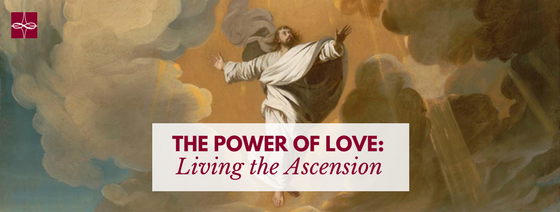

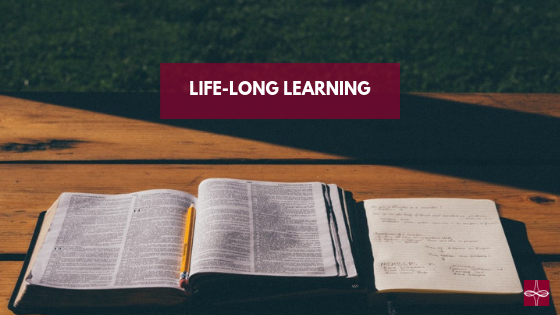

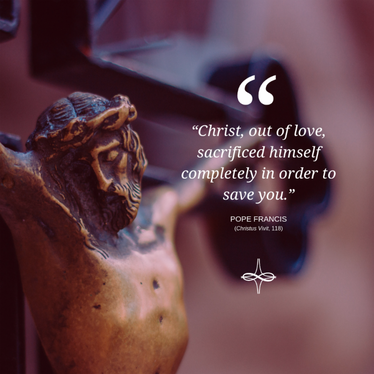
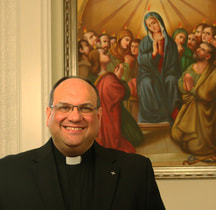
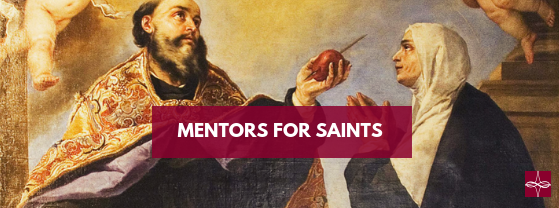

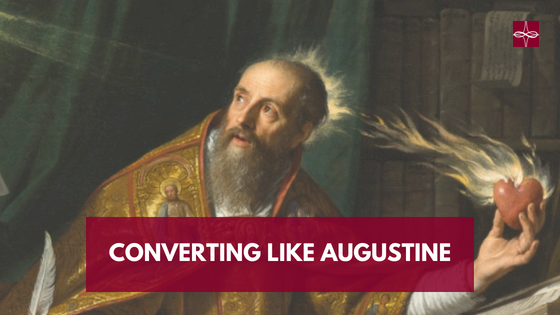

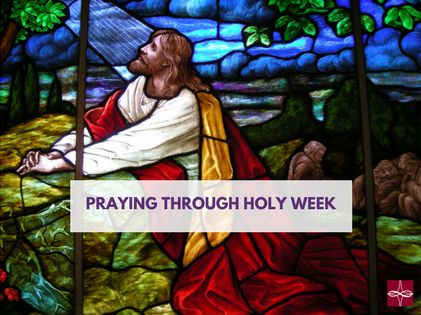

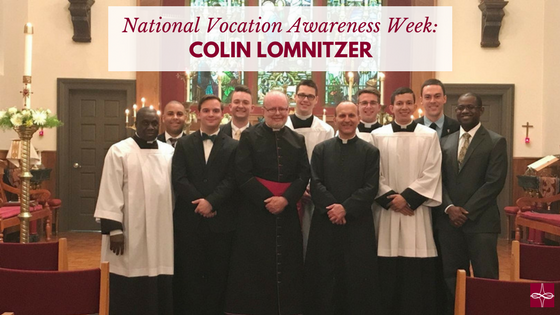
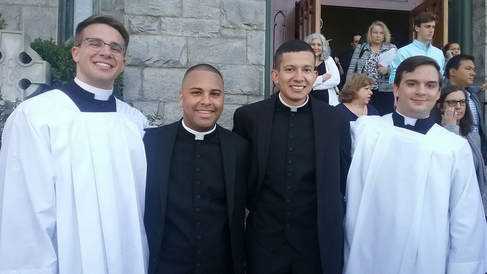
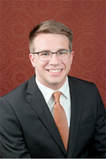


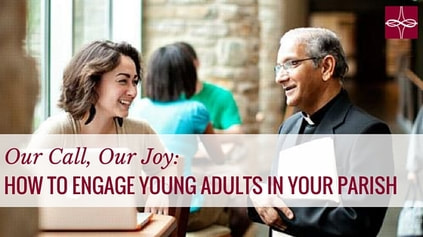
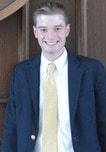
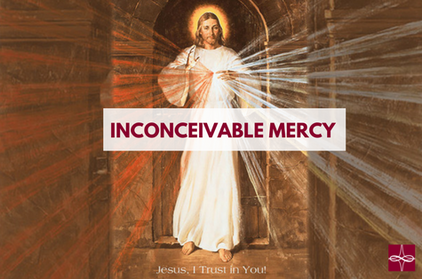

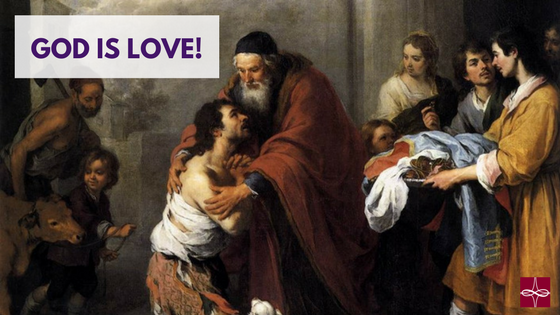

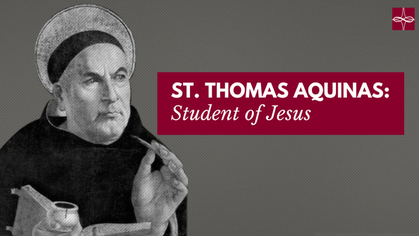
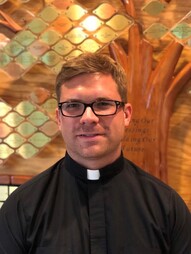
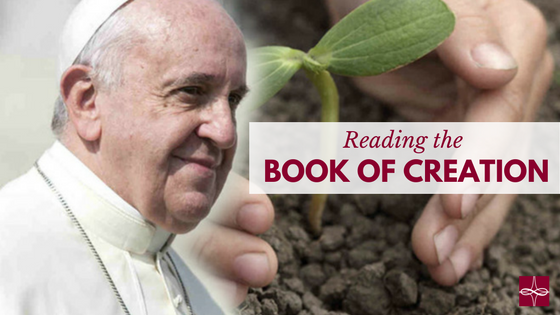
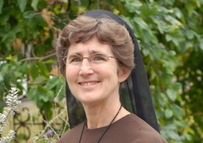
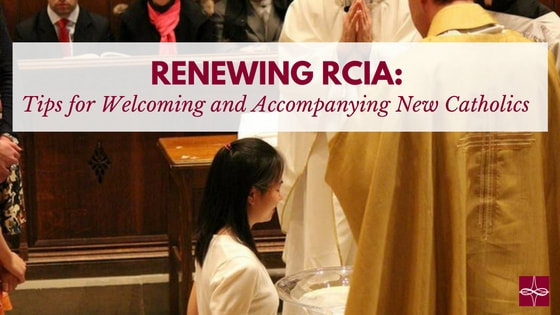

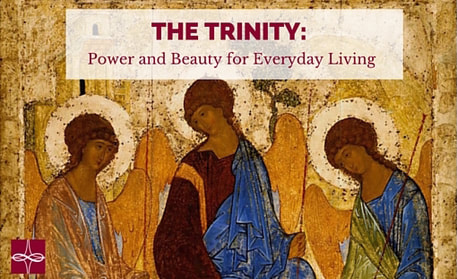

 RSS Feed
RSS Feed